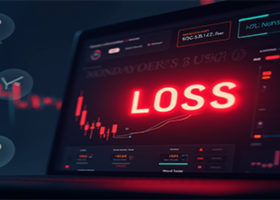0
249
Proprietary (prop) firm traders and professional/institutional traders are both active participants in financial markets, but they differ significantly in terms of their roles, structures, and motivations.
-
Proprietary Firm Traders:
- Role: Proprietary traders, often referred to as "prop traders," work for proprietary trading firms. These firms use their own capital to trade financial instruments, including stocks, options, futures, and forex, with the goal of generating profits.
- Capital Source: Prop trading firms provide their traders with the firm's capital to trade. The profits generated are typically shared between the trader and the firm, with the trader receiving a percentage of the profits.
- Risk Profile: Prop traders are exposed to the risk of the firm, and their compensation is often tied to their trading performance. If a trader consistently generates profits, they can earn substantial bonuses.
- Autonomy: Prop traders often have more autonomy in their trading decisions compared to institutional traders. They may have specific strategies or markets they focus on, and they are accountable for the profitability of their trades.
-
Professional/Institutional Traders:
- Role: Professional or institutional traders work for financial institutions such as banks, hedge funds, asset management firms, Institutes, pension funds, or other large financial organizations. Their primary responsibility is to manage and invest client funds, and some trade for institutes.
- Capital Source: Institutional traders trade with the capital of the organization or funds managed by the institution. They do not trade with their personal funds or the firm's proprietary capital.
- Risk Profile: Institutional traders are accountable for managing risk and achieving the investment objectives set by the institution or their clients. Their compensation may include a salary, bonuses, or a percentage of the profits, depending on the structure of their employment or compensation agreement.
-
Key Differences:
- Capital Source and Risk: The primary distinction lies in the source of capital and risk exposure. Prop traders use the firm's capital and share profits with the firm, while institutional traders manage external funds and follow specific investment mandates.
- Autonomy: Prop traders often have more freedom in making trading decisions, as they are trading with the firm's capital. Institutional traders, on the other hand, may need to adhere to specific investment strategies and guidelines set by the institution or fund they work for.
- Compensation Structure: The compensation structure for prop traders is often tied more directly to their trading performance and the profits they generate, while institutional traders may have a more traditional salary and bonus structure.
In summary, while both prop firm traders and professional/institutional traders engage in active trading, their roles, sources of capital, risk profiles, and compensation structures differ significantly. Prop traders trade with the firm's money and share profits, while institutional traders manage external funds and are accountable to their organization or clients.


